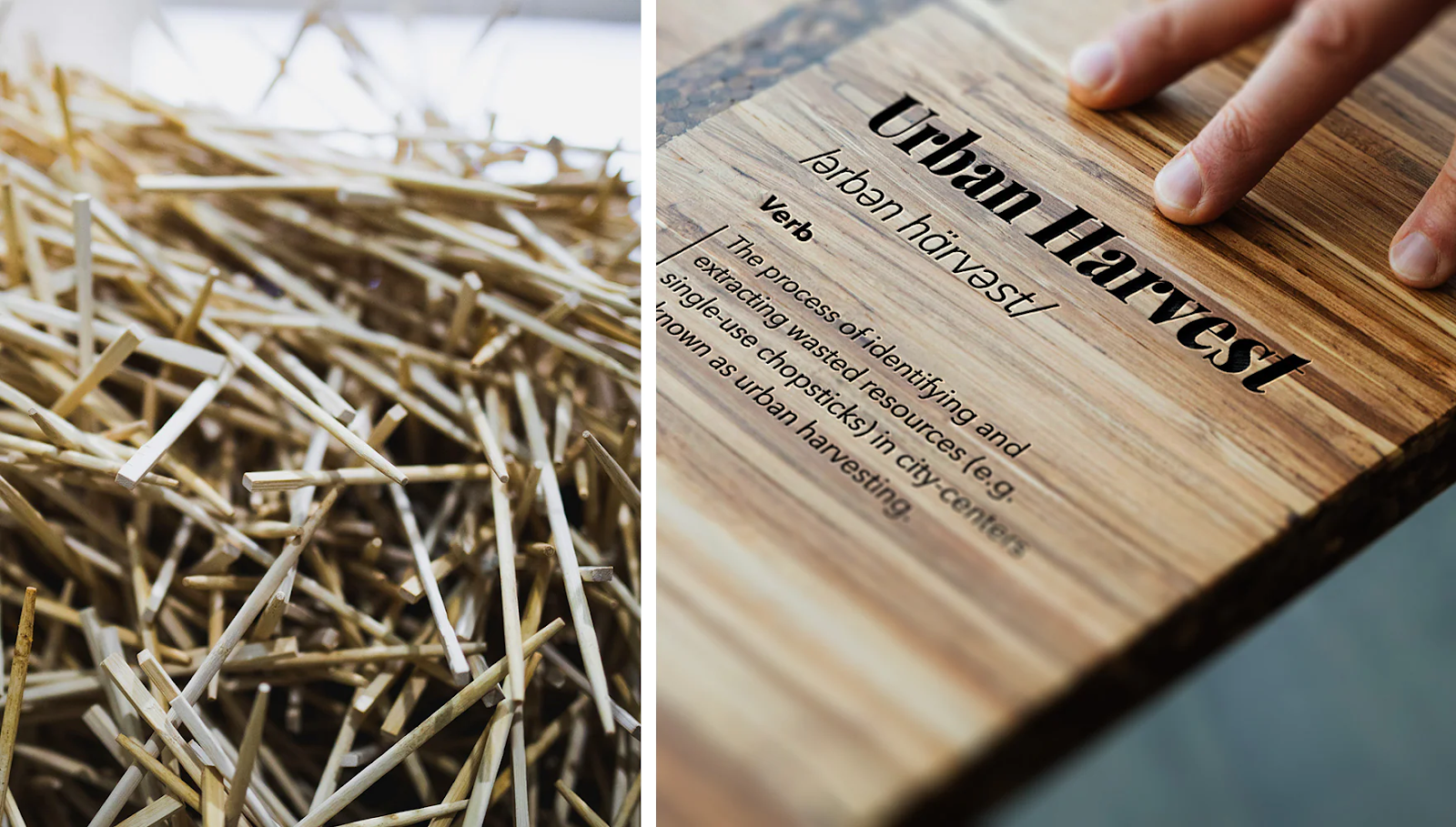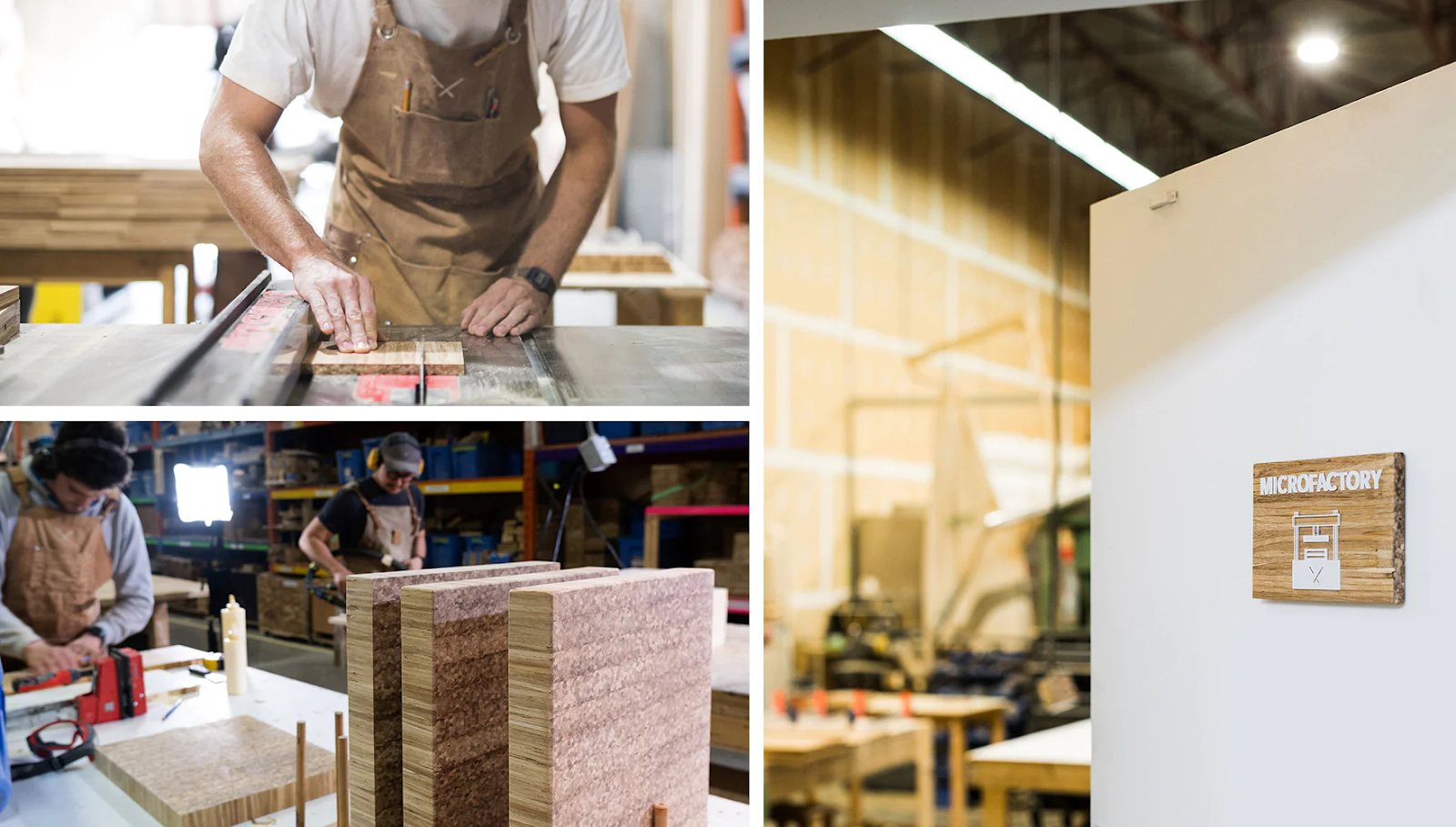ChopValue collects discarded chopsticks from restaurants in the U.S. and Canada and turns them into sustainable products. The concept might seem a bit niche, but the Vancouver-based company has recycled more than 100 million of the utensils and announced a $7.7 million funding round in April to expand into parts of Asia and Europe.
Such a unique business begs the question, how did ChopValue’s founder and CEO, Felix Böck, come up with the idea? It’s obvious in hindsight: by eating sushi.
“I have a background in wood engineering from Germany and was pursuing a Ph.D. in structural bamboo composites in Vancouver, where I quickly developed a sushi addiction,” Böck told “Forbes” in an interview. Put simply, structural bamboo composites are materials primarily derived from processed bamboo used to replace wood.
The Idea And Industries
While eating sushi in 2016, he connected the dots between the eating tools he was using and his academic pursuit. According to the ChopValue website, over 90% of disposable chopsticks are made of bamboo in North America. Böck, a passionate environmentalist, saw the opportunity to make a difference with his bamboo expertise and founded the company later that year.
Before diving into the details of how the furniture and design company turns chopsticks into office furniture, tiling, gaming desks, and shelves, it’s worth exploring a brief history of the furniture and wood industries.
Since 1990, there’s been a steady increase in the percentage of wood waste recycled per year. But a lot of wood in the U.S. ends up in landfills — 12.2 million tons in 2018, to be exact.
Governments worldwide are pushing for stricter packaging waste regulations. Invariably, more companies will turn to recycled wood and its variants as alternatives.
The furniture industry has a similar issue. Americans throw out 12 million tons of furniture annually, an increase from 2 million in 1960. In addition, the market for new furniture still dominates the used furniture market. But, a growing number of consumers across all generations are willing to pay more for sustainable products. ChopValue is uniquely positioned to curb wood waste and ride the wave of eco-conscious consumers by producing sustainable products.

Photo Courtesy ChopValue
Start Small, Scale Fast
In the early days, Böck figured out how to use steam, heat, and pressure to turn used chopsticks into multifaceted blocks. ChopValue started off small from there.
The company partnered with local restaurants in the Vancouver area to recycle their discarded chopsticks and create the sustainable pieces, which could be turned into homeware, decor, and more. The circular recycler has expanded to cities across the world, including Boston, Las Vegas, Mexico City, Toronto, Singapore, Liverpool, and Bali.
ChopValue’s successful scale is largely due to its unique offer to franchise its “microfactories.” The idea is to take a decentralized approach to scale its positive impact on the planet.
“We envision building a network of distributed micro manufacturing franchises, allowing you to do your part of becoming more resource efficient in your local community,” according to the company website. “We are looking for urban harvesters with an understanding and excitement to give underutilized resources a second life.”

Photo Courtesy ChopValue
Environmental Impact
The environmental toll of discarded chopsticks might seem minimal on the surface, but there’s a lot more below it. ChopValue publishes an Urban Impact Report, and its 2022 version offers a glimpse into the company’s true impact. Asian fast food in the U.S. skyrocketed 135% from 1999 to 2015, and the disposable wood utensils are a staple at many of these restaurants.
These chopsticks are typically produced in Asian countries and some other nations, which means they travel thousands of miles to be used for a few minutes — or not at all. This writer has seen people give one attempt to use them and then defeatedly ask for a fork.
In Vancouver alone, an estimated 100,000 chopsticks are discarded every day! For reference, it has a population of 662,248 people, which would rank as the 24th most populous city in the U.S. in 2021.
We often celebrate the lofty, flashy, or “cool” ideas, like reaching the moon (ok, that was cool), developing flying cars, “capturing carbon,” or creating electric vehicles. Ideas like turning chopsticks into furniture don’t get the same applause.
ChopValue started with sushi, and it became so much more. So here’s to the not-as-flashy ideas that strive to make a difference in the world — even one chopstick at a time.





